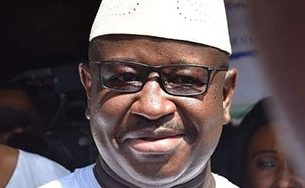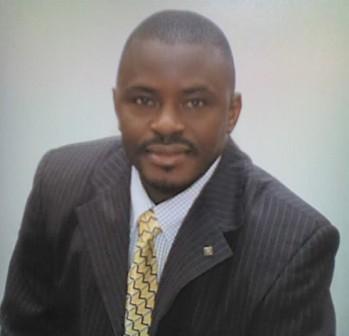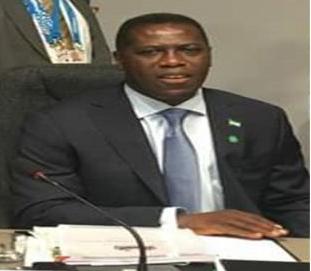Our African leaders and their politics
The recent ousting of the former president of Ivory Coast, Lauren Gbagbo has exposed the ill-fated decisions taken by some of our African presidents. Regardless of his intransigence onto power, one would be left with no option but to bow in shame in the manner this once powerful strongman fell from grace. What is wrong with some of our leaders? Why is politics considered as a matter of life and death? Look at the American democracy or the western politics, and see which leader has ruled for twenty or some years. In the American scenario, Bill Clinton, former president left office with the highest end-of-office approval rating of any U.S. president since World War II. Since then, he has been involved in public speaking and humanitarian work. Based on his philanthropic worldview, Clinton created the William J. Clinton Foundation to promote and address international causes such as treatment and prevention of HIV/AIDS and global warming. Who in the world will not be proud of such a man? That is all public life is about. (Photo: Ibrahim Sourie Mansaray, author)
African politics is completely different. Some African leaders want to die in power as if they are the only anointed ones to steer the ship of state. Even in the Holy Bible and Quran, God had his prophets and other followers who took the mantle after the departure of Prophet Muhammad and Jesus Christ. Most of these presidents who have fought to retain power by all means have gone down the wrong path of history.
On May 16, 2006, the Nigerian Senate voted down a bill that would have altered the country’s constitution to permit President Olusegun Obasango to seek a third term in office. The outcome of President Obasanjo’s third term campaign and the process through which it was reached are indicative of a growing trend in Africa whereby the formal rules of the game are beginning to matter in which they previously have not. The significance of the Nigerian Senate’s actions must be viewed against the backdrop of this entrenched understanding of how African politics operate. President Obasanjo was forced by the rules of the game to accept something other than his preferred outcome.
Benin, a tiny country in West Africa had had no fewer than twelve heads of state, every one of whom was overthrown in a coup d’état. Mathew Kerekou first took power following a coup in 1972, after nearly twenty years in power; he agreed to hold an election in 1991, which was won by Soglo. Soglo then permitted elections to take place five years later, as prescribed by the constitution, and stepped down when Kerekou won. In 2006, Kerekou stepped down after agreeing not to attempt to change the constitution, which prohibited him from running both because of a two term limit and a maximum age requirement of 70 years.
Most African elections are contested on rigging. In only 2 of the 26 presidential elections held in Africa in the 1960s did the incumbent actually face an opponent. The vast majority of presidential elections during this period were little more than plebiscites or grassroots mobilization exercises in which the head of state stood no risk of losing power. Since 1990, more than three dozen African countries have adopted new constitutions, the vast majority of which have included prohibitions on presidents serving more than two terms in office. In the 1960s and 1970s, it was common place for African leaders who wanted to perpetuate their rule simply to have themselves declared “Life President” as Kamuzu Banda did in Malawi, Eyadema in Togo, Mobutu in Zaire, Nguema in Equatorial Guines, Idi Amin in Uganda, and Bokassa inthe Central African Republic.
In recent times, Presidents Chiluba of Zambia, Bakili Muluzi of Malawi and as we have seen, Obasanjo of Nigeria were rebuffed in their efforts to thwart the rule of the constitution. As for Chiluba, fifteen senior members of his own party opposed his bid to amend the constitution. In the face of such concerted opposition, Chiluba ultimately backed down. Mulizi also faced strong public opposition to his bid for a third term.
African leaders why, why hold onto power for so long? In some countries, some leaders were able to change the constitutional provisions that prevented them from continuing their rule. Presidents Deby of Chad, Omar Bongo of Gabon, Lansana Conte of Guinea (late), Sam Nujoma of Namibia, Eyadema of Togo and Museveni of Uganda all suceeded in changing their constitutions to allow for third terms.
The intransigence of our African leaders have witnessed nasty political outcomes. In Liberia, though western powers and religious leaders called on Samuel K. Doe to flee in the face of sustained offensive against his government, K Doe insisted in preserving his respect thereby leading to his premature death. In Ivory Coast, it is a matter of living by the same sword on two cases. The former military ruler, Robert Guei staged a coup and conducted a fraud election. Though he lost, he insisted on winning the elections and he was subsequently killed by his own military forces. The aftermath of the election witnessed Lauren Gbagbo ascending to power. After a decade, Lauren Gbagbo contested an election that was internationally acclaimed as free and fair. The election commission proclaimed his opponent, Alassan Quattara as the winner. Gbogbo cried foul and proclaimed himself president thereby plunging a once haven of peace into a war zone country.
Though critics would accuse Gbagbo of mixing sand in his own food, his dismal capture and humiliation of his family marked the consequences of an African leader who resisted change through the ballot box.
African leaders should change and copy the western democracy. No man is indispensable in life. We are all born with different qualities that can contribute in different forms to national development.
Politics can be bad when as a leader you want to monopolize it. African leaders should learn from history. It is with this pride of honesty that Sierra Leone’s politics is an emulation to other African countries. African leaders should look at the respectful role of our former president, Tejan Kabbah is enjoying today.
Thank God, politics is not my way as my little village of Jaiama Sewafe in Kono will serve as my retirement kingdom.
By Ibrahim Sourie Mansaray, California, USA
Stay with Sierra Express Media, for your trusted place in news!
© 2011, https:. All rights reserved.






